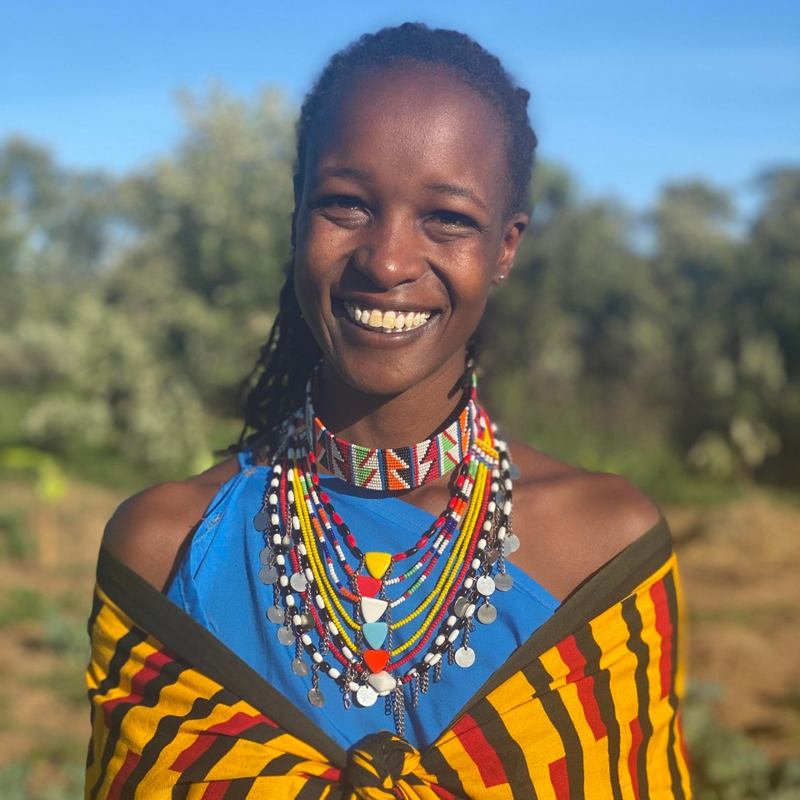Taking charge: The young activists leading the fight against FGM/C
5th February 2021
Women and girls are subject to harmful practices because they do not have the right to decide what happens to their bodies.
Today, there are more than 200 million survivors of FGM/C, many facing serious long-term physical and mental health consequences as a result of this trauma.
To make matters worse, the COVID-19 pandemic — already disproportionately affecting women in low- and middle-income countries — has further reduced their options, forcing those most at risk to stay in dangerous situations at home, and creating a huge challenge for activists to adapt and overcome in their work.
In 2021 alone, an estimated 4.16 million known women and girls are at risk of FGM/C, the vast majority under the age of 15, and likely a great many more.
The danger of FGM/C has increased in some areas during the COVID-19 pandemic. But there are people ready to counter this rise.
Around the world, committed young people are pouring their passion and energy into fighting the practice — educating, changing minds, and engaging those around them in their own communities.
Many believe that with the right strategy and education, and taking advantage of young populations in countries with high prevalence of cutting, we could see the end of FGM/C within a generation. With the UN setting an ambitious target of 2030 to eliminate the harmful practice, the work of young, grassroots leaders taking a stand has never been more vital to making that a reality.
Today, as we mark the International Day for Zero Tolerance for Female Genital Mutilation, meet the SheDecides activists working in their communities to end FGM.

The 4 SheDecides Activists
Selina Nkoile, Kenya, Nashipai Maasai Community Project
For over four years, Selina has been leading initiatives in Kenya that have saved over 400 local girls from FGM, and now aims to provide them with an education that will enable them to thrive.
Born into the Maasai ethnic group, Selina was promised to a 70-year-old man at the age of seven. Before she could be married, however, she was offered a place by an NGO at the first boarding school in her community, and became one of the first girls in her village to receive a formal education. It was here that she learned about the dangers of FGM/C. Returning from school, she founded the Nashipai Maasai Community Project, and dedicated herself to promoting girls’ access to education, and informing and supporting them when they make choices that will affect their future health and lives — particularly when it comes to FGM/C — and has continued ever since.


Juliet Ifechukwu, Nigeria, Anambra State Advocacy Core Group
Herself a survivor of FGM/C, Juliet is now a midwife and nurse, and staunch advocate for women’s rights. At just 25, she works in her home state of Anambra, Nigeria as part of the Anambra State Advocacy Core Group, focusing heavily on educating local women about the risks to both mothers and infants that come with FGM/C and childbirth — clear information, delivered to the people that need it most.
During the pandemic, Juliet has been a championing new ways to engage with people digitally — from community radio and open mics, to social media campaigns and partnerships with other healthcare professionals — to make sure the support for women does not come to a standstill.
Mustapha Hassan, Tanzania, Hope Centre for Girls
Growing up in Tanzania, Mustapha found himself in a community and family where women and girls experienced huge discrimination, with almost no rights when it came to their own bodily autonomy or lives. After watching this discrimination take place first hand, he knew he had to take action, and began his activism to make his country and community a better, safer place for women.
Beginning with volunteering for UMATI, a non-governmental organisation working on gender equality in sexual health and rights, Mustapha began working towards more awareness and community mobilisation against gender based violence, child marriage and female genital mutilation and cutting.
Today, he works with the Hope Centre for Girls, and has played a key role in kicking off the SheDecides movement in Tanzania by leading the SheDecides ICPD Youth Caravan, consulting over 300,000 local young people to gather their perspectives.


Natalie Robi Tingo, Kenya, Msichana Empowerment Kuria
Disturbed by the abuse of women and girls in her community in Southern Kenya and the lack of support they receive, Natalie founded Msichana Empowerment Kuria at just 19 years old.
Today, her organisation reaches more than 30,000 people in her community with a focus on involving young people and their creative ideas in solving social problems. She helps to educate her community on the dangers of FGM/C, and offers programmes that show the importance of education, human rights, youth and women empowerment.
As Natalie herself puts it: “Once girls understand that what’s happening to them is wrong, they are able to fight for themselves and rescue others. Everyone should be a girl’s rights activist — care for one another, and in this case, care about the most vulnerable women and girls. That’s justice.”

